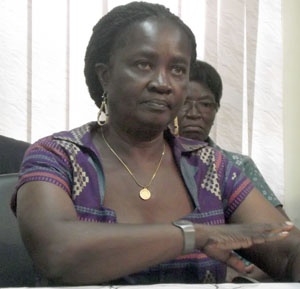Public basic schools are in a sorry state. That is the succinct verdict from interviews conducted by the B&FT with some head-teachers and schools in four regional capitals -- Accra, Kumasi, Sunyani and Tamale -- during a three-week period since June.
The head-teachers, who asked to be anonymous due to a Ghana Education Service (GES) directive prohibiting interviews with the media, listed an array of problems which combine to deny their pupils the standard of education necessary to realise their potential and compete with international peers.
Decrepit infrastructure, unavailability of teaching materials, absent or poor-quality teachers, and uninterested parents were mentioned by the heads among the challenges facing schools. The biggest and most urgent problem, however, is financial -- with some of the head-teachers revealing that they have not received their capitation grants since 2012.
Public basic education is supposed to be free, and the government is expected each year to transfer a grant of GH¢4.5 (US$1.5) per child to the schools to meet their recurrent expenses. The reality however is very different.
Every head-teacher interviewed said the grant is never paid on time. One head-teacher of a school in Weija, Greater Accra, said their grant has not been paid for more than 12 months -- compelling him to buy chalk and other items on credit to provide lessons to the pupils numbering about 500.
Head-teachers in Sunyani had a similar complaint. Their schools lack textbooks, chalk, exercise books and other stationery. Some schools have not received report cards, registers, and continuous assessment books since 2012.
“I have to personally finance the purchase of these materials to keep the school going,” one headmistress said. “The government has been inconsistent and not forthcoming,” she added.
Despite the obvious neglect of the schools by government, parents -- believing in the notion that public basic school is free -- don’t invest in their children’s education and offer no support to their schools, the head-teachers lamented.
“They don’t want to buy uniforms, books and other pressing needs of their school-going wards, thinking government will provide them,” a head-teacher in Sunyani said.
Some head-teachers felt the situation is worsened by poor-quality teachers who lack commitment and passion for their work. “The competence of most of the new breed of teachers from the colleges of education is questionable,” one said, “which affects their output”.
In Yendi in the Northern Region, B&FT discovered that teacher-absenteeism is rampant and pupils spend a lot of hours loitering. In some schools, teachers -- head-teachers, too, in some cases -- were not around as at 8am when lessons are expected to begin.
The teachers later complained to the B&FT that the area does not have reliable electricity and water, forcing them to find accommodation outside the town.
A former headmaster and renowned pastor in the town said teachers are poorly monitored by GES supervisors, and it is this lack of accountability that fuels absenteeism.
“Most of them report to school either once or twice a week, and then stay at home till the following week because there is no one around to monitor their activities. Some of the teachers have even been provided with accommodation, but they prefer staying far away from the school -- meaning they report late and leave early.”
Studies have confirmed a high rate of teacher absenteeism in the country’s schools, with teachers absent from their class at least one day in five. Worse is that absenteeism is rampant in poor communities such as the north. In areas with poverty rates above 60 percent, a teacher can be absent for two days in a week one study found.
Children pay a high price for this level of absenteeism. At least 40 percent of pupils who write the national Basic Education Certificate Examination (BECE) do not attain the pass rate, while two out of three pupils leaving basic school are functionally illiterate.
A teacher from Accra said the mode of teacher supervision is wrong and partly accounts for poor educational outcomes.“Inspectors from the Ghana Education Service come and only inspect teachers’ lesson notes to determine whether they are really performing. So teachers rather prepare the lesson notes and do not teach, because after all he has something to show that he is performing when the inspectors come,” he said.
“If teachers do not waste time to prepare lesson notes, they will have enough time and strength in class to teach. Teachers at the senior secondary school level do not prepare any lesson notes, yet the students write their end-of-term exams and do very well.”
The former headmaster in Yendi said circuit supervisors do not discharge their duties of ensuring that teachers posted to the district attend school early and regularly to teach when it is time for lessons.
He said teachers should be posted around often and assessed based on the legacy they leave behind in every school. “This will bring competition since no teacher would like to leave a bad legacy or be discovered to be incompetent. It will also enable authorities to better assess the performance of teachers.”
Asked how government can improve public basic education, the head-teachers interviewed said the solution is to address the known problems, adding that unless paper-policies -- such as the capitation grant--– are matched by action, very little progress will be made.
Business News of Wednesday, 16 July 2014
Source: B&FT

















